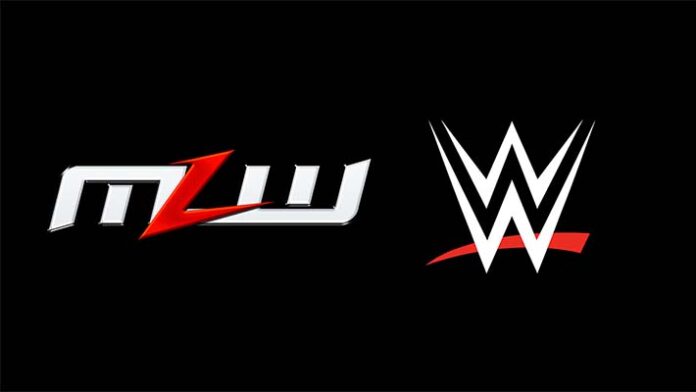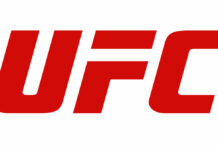
By nature of the business that originated from the carnival circuit, professional wrestling often finds itself in the “truth is stranger than fiction” category, particularly when the unique brand that is sports entertainment finds itself subject to the logic of the real business world.
The Wrestling Observer’s Dave Meltzer reported that WWE legal ace, Jerry McDevitt has stepped away from the current antitrust lawsuit that Court Bauer and Major Legal Wrestling filed against the organization last year, citing that he planned to retire before the case would conclude. McDevitt, who represented the company since the late-80s, is one of the most important figures in the history of the company, even if most fans wouldn’t recognize him. The primarily example was the steroid trial of the early-90s, and as flimsy as the case against the emperor of sports entertainment might’ve been in retrospect, the media coverage at the time gave the impression that Vince McMahon might be dethroned from his WWF kingdom. Of course, his actual fall from grace would come many years later with the sexual misconduct scandal, but as we know, Vince not only remained telfon, he’s back in charge of WWE and cashed out at the same time with the Endeavor merger. McDevitt made sure McMahon didn’t do the job to Uncle Sam in the early-90s and has guided him through rough legal waters since that time. Quite simply, without the legal czar’s counseling, it’s very possible the WWE would look very different today.
That being said, McDevitt’s exit from the MLW case has very little to do with its merit or lack thereof.
The attorney is 74 years old, and while McMahon is determined to outlive us all and run the show at Wrestlemania 70, McDevitt probably just didn’t want to be involved with the court proceedings that are expected to take longer than he plans to continue practicing law. So, I don’t find his exit from the WWE’s legal team, or the fact that the company hired a new firm to take over the case to be an indication of anything. If McDevitt isn’t going to be there to lead the legal team, it makes sense for the organization to go with a new firm, the same firm that Meltzer reported is also handling the legal aspect of the Endeavor merger so it’s still an “in-house” legal defense.
When MLW originally filed the lawsuit against the WWE in January of last year, I didn’t think much of it, and truthfully still don’t. Initially launched in 2002, Major League Wrestling was among an alphabet soup of organizations that tried to promote itself as an alternative product or as a replacement for ECW, running at the world famous bingo hall in Philadelphia. Very similar to most other projects among the post-Attitude era landscape, MLW looked more like a vanity project than anything that would reach a level beyond an independent group with a budget. The group folded in 2004. Its founder, Court Bauer went on to work as a writer for WWE in the mid-2000s before he relaunched Major League Wrestling in 2017. Keep in mind, this was when Impact Wrestling was on the brink of collapse and had to be rescued by Anthem to stay afloat after the Dixie Carter debacle with NWA owner, Billy Corgan.
This time, MLW took a different approach with the use of many independent stars, some of those who went onto bigger stages in the years that followed. Still, MLW was and continues to be more or less a niche indy product with more of a budget than more independent shows, which isn’t meant as a knock, but rather a comparison to its place among the industry. Jacob Fatu is an extremely talented athlete that looked to be destined for national television with either AEW or WWE, but reportedly, a criminal record kept him off their radar. Alex Hammerstone is a tremendous performer and is definitely skilled enough to be on national TV. The influx of lucha libre over the years was also a highlight for the company. In many ways, Major league Wrestling has the Ring Of Honor spot before the Sinclair purchase in 2011. They aren’t big enough to necessarily make a dent in the national scene, but have a big enough platform to get their stars noticed, which again, isn’t meant as a jab. The shows have good production, a good announce team, and offer something different, albeit to a niche demographic, in a crowded wrestling landscape.
As I said, I didn’t originally cover the MLW lawsuit, as I didn’t expect it to be anything major, but McDevitt’s retirement brought it back into the headlines.
Will Vince McMahon be a ruthless promoter and squash the competition if he can? Absolutely, but he’s too smart and the WWE is too big, especially after the Endeavor merger to let anything be interpenetrated as an antitrust maneuver. MLW’s initially claim was that when the company was set to sign a deal with streaming platform Tubi, which is owned by Fox, the deal was canceled because WWE Smackdown airs on the Fox network. First and most importantly, it’s very doubtful that WWE saw MLW has a threat to its market share, simply because the group wasn’t running on a scale big enough to make a difference. Major League Wrestling doesn’t have the revenue or the resources to sign major names or run major arenas. Don’t get me wrong, MLW does well for its level, but it’s not even a full-time touring company. All Elite Wrestling is the closet entity that the WWE has to competition, and a major reason for that is that its funded by a billionaire family. Secondly, Tubi is a free streaming platform and while it’s a known app, it’s not as though it provides anything close to main stream exposure so why exactly would the WWE want to prevent it from being on the streaming service?
There were also claims that MLW was going to ink a deal with Vice, but the network, which recently filed for bankruptcy so it might be moot, was told that Vince McMahon would be upset if the channel aired the Major League Wrestling shows. Again, Vice TV, which airs the Dark Side of The Ring series, is a relatively small network so even if MLW aired on the channel, it doesn’t have the TV clearance to be a threat to WWE.
Finally, earlier this year, MLW signed a 10-week deal with the Reelz network, another relatively small channel to air their shows. Around the same time, Reelz signed a contract to put its content on Peacock, the streaming service for the WWE Network. Reelz aired the ten MLW episodes that were contracted for and opted not to renew the deal. From a legal prospective, the contract was completed as signed. Granted, anything is possible, but I would be very surprised if the WWE went after MLW specifically, if for not other reason than it’s not necessary. If truth, if McMahon wanted to disrupt MLW’s business, the WWE could offer Jacob Fatu and Hammerstone hefty contracts that were too good to turn down and then MLW doesn’t have its top two stars on the roster.
Unless something major is revealed in the court proceedings of the case, it’s very doubtful that anything significant is going to be accomplished from the lawsuit. The fact that WWE wrestlers are independent contractors, not employees, is ludicrous, but that’s not the topic of debate. All things considered, this might be Court Bauer’s attempt to get a payoff, especially if MLW doesn’t generate enough revenue for the company.
What do you think? Share your thoughts, opinions, feedback, and anything else that was raised on Twitter @PWMania and Facebook.com/PWMania.
Until next week
-Jim LaMotta
E mail [email protected] | You can follow me on Instagram & Facebook @jimlamotta89







